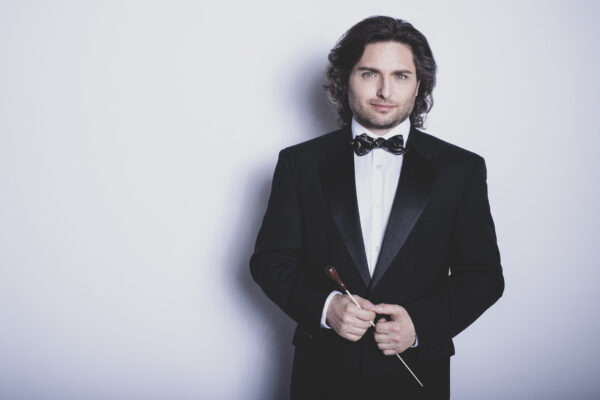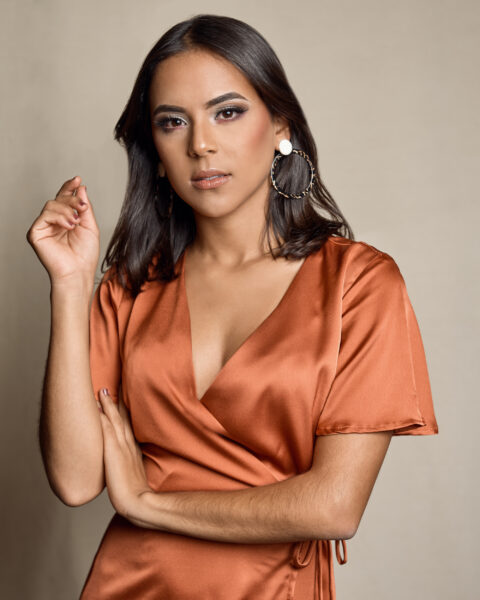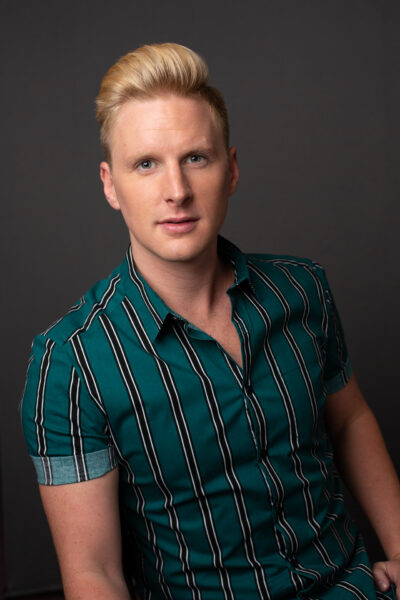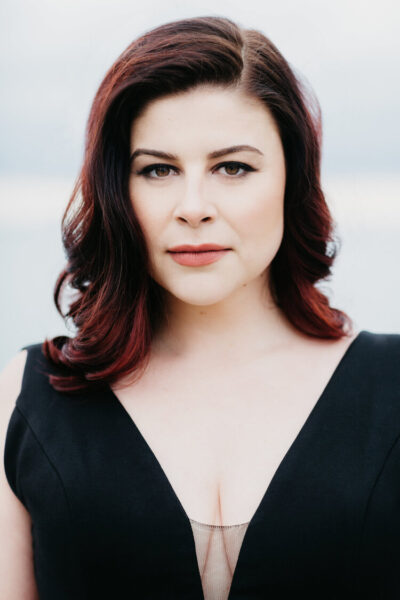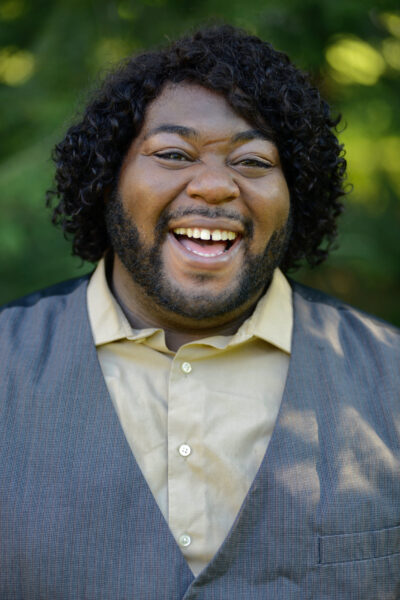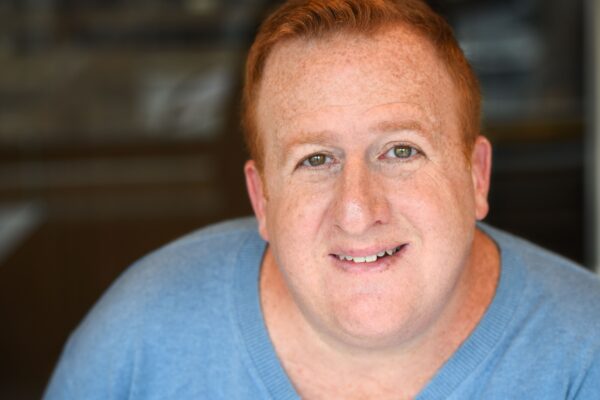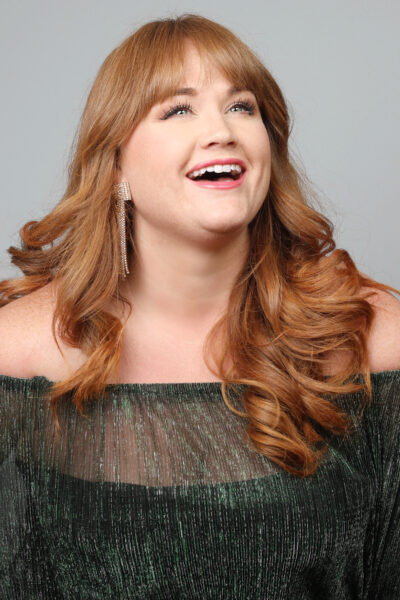“Tyson is a polymath – a coach, accompanist, conductor. He knows voices and repertoire. He’s a master of new works, he’s an all-around opera man.” – Miguel Rodriguez, Founder and President, Athlone Artists
Cited for his “effective leadership” (Opera News) and “calm, cool and confident” demeanor (Theater Jones), American conductor Tyson Deaton is known for leading “energetically conducted” (New York Times) performances in a broad range of repertoire. Though the collaborative pianist, coach, recitalist and chamber musician’s roots are firmly planted in the traditions of the standard operatic repertoire, Deaton’s affinity for interpreting contemporary scores has led him to become a trusted musical authority in the development of new works.
In recent seasons, Deaton has conducted from the harpsichord Kentucky Opera’s production of Le nozze di Figaro; led the workshop of Joel Thompson and librettist Andrea Pinkney’s setting of Ezra Jack Keats’ beloved children’s story The Snowy Day for Houston Grand Opera; conducted the workshop and premiere of Zach Redler and Jerre Dye’s The Falling and the Rising, co-commissioned by the United States Army Soldiers’ Chorus and Field Band; and worked on premieres of Matthew Peterson’s Voir Dire; Libby Larsen’s operatic version of Madeline L’Engle’s A Wrinkle in Time; Robert Paterson and David Cote’s The Companion and Safe Word from their opera triptych, Three Way; and Tarik O’Regan and Anna Rabinowitz’s The Wanton Sublime. Seen and Heard International said of the world premiere of Robert Paterson’s The Companion with American Modern Ensemble, “under the baton of Tyson Deaton, a special energy reverberated between singers and musicians.”
Deaton didn’t consider his career path would lead him to the orchestral podium. An avid learner, he taught himself keyboard basics on his grandmother’s piano and then to read music starting at age three. He later moved on to become a string player, first on the violin and graduating to cello, and learned to decipher reading tenor and alto clef. He discovered opera in his college years as a piano major when he took on the role of accompanist for bass Richard Best’s vocal studio. There, he happily took Best’s advice to study voice. “There’s hardly ever a moment in my life that I’m not learning something,” says Deaton.
Deaton excelled in his training as a coach and collaborative pianist at Cincinnati’s College-Conservatory of Music and went on to pursue work as a pianist and coach. He was working at Sarasota Opera in 2008 when both the conductor and assistant were unavailable for a rehearsal of Madama Butterfly, and Deaton was asked to step in. “I did not want to be a conductor,” says Deaton. Nonetheless, he stepped into the role.
A few years later, Deaton was asked by Fort Worth Opera to conduct the premiere of Tom Cipullo’s Glory Denied. “I knew Tom’s songs, and this was right up my alley.” Not one to shy away from a challenge, Deaton accepted. And he’s glad he did. “This was the start of my conducting career, and that was something that had begun to appeal to me,” he says. “That opportunity was tremendously important to me.” The show was a great success, capped off by a recording released on Albany Records that was lauded as “Best of 2013” in the Washington Post and ranked among the “12 Best Full-Length Opera Recordings of 2014” by Opera News.
Deaton still maintains an active coaching schedule and enjoys work as a clinician for pianists and singers. He has partnered as a collaborative pianist with some of the most recognizable names in opera from Denyce Graves to Sherrill Milnes; has held academic appointments at the University of the Pacific, Lawrence Conservatory, and the Shepherd School of Music at Rice University; and served as Artist-in-Residence at McGill University and Carnegie Mellon. It is on the podium, however, where Deaton synthesizes his years of training in each discipline and finds his true home.
As he was preparing for Houston Grand’s workshop of The Snowy Day in 2020, Deaton recalls that librettist Andrea Pinkney said to him, “You really do see everything.” Deaton prides himself on this trait. “It starts from the structure of the libretto,” he says. “Whether it is a part of the classical canon or a new work, there is a way that the vocal writing fits into the music. There’s a whole musical architecture to discover. Often contemporary music works demand a high level of precision. And all of it – be it vocal music, or an orchestral or instrumental work, relies on breath and timing.”
Deaton also makes sense of a musical score in colors. “I have synesthesia,” he explains of his intertwining sensory pathways. “I see colors in scores and on pitches. For most of my life, I thought this was normal and something everyone was able to do!”
Deaton’s first rule when preparing a score is to “work through every phrase with an idea of what should happen – finding the balance between the things we can see on the page, what we can’t, and identifying the things that we should and shouldn’t control.”
Deaton continues, “People say that I’m an ‘old school conductor with modern sensibilities,’ which to me means I’m practical. My guiding principle is that in order to be a master, you have to be a student.”
